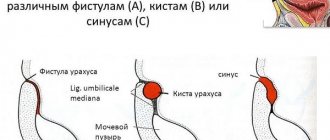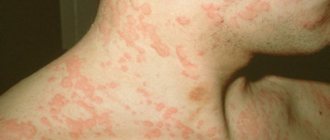Asperger's syndrome is a congenital behavioral disorder in which social interaction and adaptation in society are disrupted: patients become withdrawn, cease to be interested in what is happening around them, and become immersed in their own experiences and thoughts. They perceive events distortedly, do not want to communicate and make friends, and experience a lack of communication. At the same time, their central nervous system functions normally, and the processes of thinking, memory, spatial orientation, understanding, calculation, learning and speech are distinguished by a high level of development. Such “mild” and “borderline” violations are registered in different countries and cultures, among people of any religion and social status.
Problems of social relationships in patients are usually combined with physical signs - clumsiness, clumsiness, sluggishness. In children, the syndrome manifests itself as an inability to establish and maintain friendly contacts. They are not able to empathize with their peers, are indifferent to the troubles of loved ones and relatives, and have problems with behavior in society.
Diagnosis of Asperger's syndrome involves a psychiatric and neurological examination. Because the cause of the syndrome remains unknown, there is no standard treatment regimen. Support methods include medical correction, work with teachers and psychologists, and training in the basics of social interaction. The purpose of such events is to eliminate clinical manifestations and improve the functioning of the body. As children grow older, they overcome such problems and gradually adapt to society.
The disease is registered more often in male schoolchildren. The syndrome received this name thanks to its discoverer from Austria, pediatrician Hans Asperger. The doctor observed children with similar clinical signs, on the basis of which he classified the disease as “autistic psychopathy.”
Asperger's syndrome usually develops in individuals with apraxia, dyslexia, attention deficit disorder, depression, and high levels of anxiety and restlessness. Famous people with Asperger's syndrome: businessmen-founders of Ford, IKEA, Apple, as well as scientists Einstein, Newton.
The essence of Asperger's syndrome
This syndrome is called a general developmental disorder, which is congenital and accompanies a person throughout his life. But a distinctive feature is a fairly high ability to socialize, so Aspie syndrome (as patients call themselves) is considered a form of high-functioning autism.
A mental disorder involves the perception of the world around us, the processing of information and the attitude towards other people. Since autism is a spectrum of disorders, the manifestations of Asperger's syndrome vary among patients. The pathology is classified as a “hidden dysfunction” because it is impossible to determine its presence by someone’s appearance.
Characteristic triad of symptoms
This pathology is characterized by three disorders:
Communication process
A person with Aspie syndrome has difficulty interpreting facial expressions, voice intonations, gestures and facial expressions. Ordinary people quite easily distinguish an angry tone from a gentle voice, correctly interpret facial expressions (pushed eyebrows - anger, anger, a smile - good nature, etc.). Therefore, let’s say, normal people correctly perceive others and, accordingly, correctly react to their behavior.
People with Asperger's syndrome find it difficult to interpret the external and vocal manifestations of others, which creates problems in communication and interaction with other people and often causes anxiety, confusion and fear. Patients with Aspies find it difficult to start a conversation, finish it, and also find it difficult to choose a topic for conversation. They often use complex phrases and words without understanding their meaning. They also don't understand jokes and metaphors.
Interaction process
Most people with this syndrome have difficulty creating and maintaining friendships. Such people are characterized by isolation, alienation and indifference. Therefore, such patients, usually children, often become outcasts in society.
People with Aspies do not understand unwritten “social requirements” (you cannot stand very close to a person or start a conversation on an inappropriate topic). Patients often perceive the people around them as unpredictable, which confuses them. From the outside, the behavior of people with Aspies often looks incorrect.
Social imagination
Patients with this syndrome often have a rich imagination, but they are not able to include it in their normal activities, as well as the creative aspect. Since such people subject everything to the laws of logic. Therefore, patients with Aspies cannot, and do not want, to understand the emotions of others and experience difficulties in interpreting their thoughts, feelings and actions. As a rule, the messages conveyed by body language and facial expressions are overlooked.
However, such patients are characterized by a penchant for logical games, and creative activity is quite limited and is characterized by strict consistency and repetition. In children with Aspie syndrome, problems with social imagination clearly manifest themselves in games that involve pretending or pretending to be someone. Often such children prefer activities that are based on consistency and logic, for example, mathematics. And yet, despite difficulties with social imagination, people with Aspies often become writers and artists (Carol Lewis, Van Gogh), musicians (Bob Dylan).
Diagnostic measures
Diagnosing the syndrome is not an easy task because its symptoms are similar to those of other mental disorders. The sooner the diagnosis is made, the easier it will be for the sick person to adapt to society.
Patients are examined and diagnosed by specialists in the field of general pediatrics, neurology, speech therapy, genetics, and psychology. Parents, teachers, and close friends can notice the symptoms of pathology in a child. Only a psychiatrist who will subsequently treat the patient can confirm or refute the alleged diagnosis.
Basic diagnostic methods:
- Thorough clinical examination
- Collecting a detailed medical history,
- Conversation with the patient
- Interview with relatives and close people,
- Medical genetic counseling,
- Intelligence and psychomotor development test.
With the help of neuropsychiatric examination and neuropsychological tests, specialists determine the level of mental and physical development in patients, personality characteristics, and ability to live in society.
To exclude brain pathologies, instrumental diagnostics are performed - encephalography and tomography.
Criteria for making a correct diagnosis:
- Social – the patient’s lack of emotions, empathy, joy, facial expressions, gestures, difficulty establishing visual contact.
- Behavioral – ritual behavior, stereotypes, patterns, limitation of interests, interest only in a favorite activity or hobby.
- Secondary - the inability to care for oneself, unemotional speech, complete indifference to events happening around.
Based on the results of testing, questioning, examination and observation, it is possible to determine Asperger's syndrome, and in some cases, even find out its cause. After a thorough diagnosis, a specialist doctor prescribes treatment for patients, which consists of attending psychotherapy sessions and taking psychotropic medications.
Causes
To date, the causes of the described syndrome have not been precisely established and are being studied. But we can say with firm confidence that this mental disorder is not a consequence of upbringing and social circumstances, and Aspie syndrome does not arise through the fault of the patient himself.
Researchers believe that the etiology of Aspie syndrome is similar to the causes of autism. The leading factors provoking this mental disorder are:
- genetic and hereditary predisposition;
- birth injuries and later traumatic brain injuries;
- toxic effects of certain substances (smoking, alcohol) in the first trimester of pregnancy.
The working hypothesis is the presence of an autoimmune reaction of the mother’s body, which contributes to brain damage in the fetus. Also noteworthy are the many discussions about the negative consequences of vaccinations. For example, the negative impact of preservatives containing mercury on the baby’s immune system and complex vaccination, which creates a large burden on the immune system.
Another theory for the cause of the development of this disorder is the theory of hormonal imbalance in the child (low or high cortisol levels, increased testosterone). But this theory has not yet been scientifically confirmed.
The relationship between autistic disorders (including Aspie syndrome) and prematurity is being studied.
Possible risk factors
- intrauterine infection or infection suffered after birth (rubella and toxoplasmosis, cytomegaly and herpes);
- genetically determined predisposition;
- toxic effects of hazardous substances in early gestation.
Menstruation
Among the participants I interviewed for this book, there were no significant differences in age at first menstruation or in the prevalence of menstrual irregularities or problems compared to the general population. However, other studies suggest a different picture. For example, one study found that women with autism are more likely to experience irregular menstrual cycles, dysmenorrhea, and polycystic ovary syndrome, which some researchers have linked to elevated testosterone levels in people with autism. In another study, women with autism experienced PMS twice as often as control women. Another study found that women with autism were more likely to suffer from epilepsy, polycystic ovary syndrome, atypical menstruation and severe acne, compared with controls. Some women I spoke with mentioned PCOS as one of their diagnoses, and it seems to be a relatively common condition among women with autism. The exact prevalence of this syndrome is difficult to establish, since a large proportion of women suffering from it are not properly diagnosed.
Characteristics of the disorder
The disease is usually detected between the ages of 4 and 12 years. It is very difficult to suspect signs of Asperger's syndrome at an earlier age. For example, bright light, an unpleasant aroma or a sharp sound will cause the baby to cry. But what other child would react calmly to a sudden change in situation? Or parents may even be pleased that the baby plays with the same toys, does not ask to buy new ones, learns quickly, begins to speak early, remembers many words, including foreign ones, and can count. Speculations arise - is the growing child a genius? But the situation begins to change dramatically with age. Accordingly, there are differences in the symptoms of the syndrome in children and adults.
Symptoms of the disorder in children
Classically, Asperger syndrome develops in a child by the age of 5–6 years, when his social circle gradually expands (school or preparatory group). It is difficult for a child to socialize in society and he often becomes the object of ridicule, bullying and even beatings (both from peers and, unfortunately, from parents). Symptoms of Asperger's syndrome in children:
- Chronic clumsiness
Due to increased sensory sensitivity (special perception of sounds, smells and colors), the child’s perception of his own body is weakened, it is difficult for him to move from room to room, he constantly bumps into obstacles, cannot be at an appropriate distance from another person (somewhat further away), problems arise with tying shoelaces and fastening buttons. The child’s handwriting is uneven and sloppy, for which he receives criticism, his gait is awkward and unsteady, and his posture is often disturbed.
- Does not participate in active or group games
Because of his clumsiness, it is difficult for a child to play active games that require speed, accuracy and dexterity of movements.
- One-sided hobbies
Passion for any subject can reach fanaticism. Hobby activities captivate a child for hours, he concentrates and focuses on little things and details, the interest is passionate, sometimes reaching fanaticism. For their phenomenal memory and extensive encyclopedic knowledge, such children are often called little professors. But, alas, not every child with Aspie is able to apply their knowledge in life. But such children often achieve success in the fields of philosophy and geography, art and mathematics.
- Doesn't like children's cartoons
On the one hand, the baby is irritated by loud sounds, and on the other hand, he has no or very limited empathy (the ability to empathize with the emotional state of another person). Emotions and relationships between characters in a cartoon are not perceived by a child.
- Love of a certain order
For example, if a child is used to walking the same route to school, then he will never change his route, and if it is necessary to change the route, the child will feel confused and anxious. Or, if the mother takes care of the child at certain hours, and in case of her absence the father (grandmother, grandfather, aunt, etc.) comes to replace him, this can lead to violent protest, tears and hysteria.
- Refusal to communicate with strangers
Strangers cause protest or reluctance in the child to communicate (hide behind mom, cry).
- Communication with other children
As a rule, such children prefer to play alone, stay away from other children or communicate with younger ones (sometimes with adults).
Symptoms of the disorder in adults
In adults with Aspie syndrome, it is more difficult to diagnose the disorder, due to their more or less adequate assessment of their own condition, strengths and weaknesses. In Asperger's syndrome in adults, a number of symptoms are associated with difficulties in social adaptation:
- Difficulty communicating with other people
It is difficult for such people to find, and generally look for, common interests with others; they have problems with non-verbal communication (they do not look the interlocutor in the eyes, do not understand facial expressions and body language, cannot understand that the person is not interested in the conversation).
- Difficulty making friends and maintaining friendships
Most patients with this disorder would like to have friends, but due to a lack of empathy and interest in the hobbies and experiences of others, it is difficult for them to find common ground and establish friendly contacts.
- Lack of interest in the opposite sex
Adapted adults with Aspie syndrome can start a family and have children. But more often such people are lonely.
Despite average and often high intelligence and high professionalism, such people rarely work in the field of management. By and large, they do not strive to “make a career”; they prefer monotonous and monotonous work (with numbers, computer programs).
Due to problems with social imagination, adults with this syndrome have the following symptoms:
- Do not understand metaphors and figurative expressions
How can hands or head be golden? Here, not made of gold, an ordinary person. Or if “the dog is buried” - then where is it buried, who buried it and why?
- They don't understand humor
- They are unable to separate lies from truth.
In addition, adults with Aspie syndrome also experience sensory difficulties. They cannot eat unusual food (too salty, spicy or hot), it seems disgusting to them. They can’t drink tea or coffee - it’s too bitter; they don’t drink juice - it’s too acrid. Even comfortable clothes made from natural materials cause them discomfort and pain.
Often people with this disorder are accepted by society as impolite and ill-mannered, or even rude individuals:
- “Aspie man” says what he thinks, that is, “cuts the truth”, without thinking about the appropriateness of his statements;
- they often make comments in cases where etiquette dictates that one should not notice the sluggishness of one’s interlocutor (for example, “how did you manage to spill salt on the table?”);
- cannot carry on small talk;
- they do not try and do not want to make a “good impression”;
- are able to suddenly interrupt the conversation and leave (because their own experiences are stronger).
Among other things, such adults are distinguished by their love for a strictly routine order (towels in the bathroom should hang at the same level, cups in the closet should be turned with the handle in one direction). It is difficult for them to rearrange their work schedule if necessary (urgent work, urgent work). They don’t like it when their things are used – this is a violation of the boundaries of the living space of a person with an Aspie. Also, such patients are extremely suspicious and suspicious. When visiting a doctor, he will ask several times whether the doctor washed his hands before the examination and whether his instruments are sterile.
Touch Sensitivity
As Aspergers themselves state, their world is much louder than that of the average person. This is due to increased sensitivity to any stimuli, be it smells, touches, sounds, or visual images. It has been established that a similar phenomenon occurs in approximately 40% of people with AS. A hypersensitivity reaction can be triggered by anything: air temperature, bright light, food, clothing such as scratchy wool or labels on the underside, the touch of other people or large accumulations of them.
For example, when riding on public transport (subway, train, bus), Aspies sometimes use earplugs or headphones that play their favorite music. The mass of people, stuffiness and noise irritate them, unbalance them and lead to stressful conditions. Music helps to distract and calm down. When the situation becomes extremely tense, they have to leave it, go off the route to stand alone and enjoy the silence, and then continue on foot.
There are special types of therapy to cope with sensory problems. One of them is sensory integration therapy. Its essence lies in deliberate contact with unpleasant stimuli, occurring gradually and in doses. Thus, a person begins to get used to such collisions, no longer feeling irritability and panic.
It is very important for Aspergers to identify a method or strategy for neutralizing unpleasant impulses. For some, this solution is a small dose of alcohol. According to Aspies, it muffles all obsessive sensations and helps reduce stress levels. Someone needs to retire for a while, wander through empty streets, someone swings on a swing.
What is the danger of Aspie syndrome
Of course, this disorder does not pose a direct threat to the life and health of the patient. Most people who underwent social adaptation in childhood found their purpose in life, a successful job and started a family. However, people with Aspie syndrome who have not undergone the necessary correction of the disorder are exposed to the following risks:
- lack of one’s place in life, falling into asocial strata;
- loneliness, depression and anxiety, which require serious medication treatment;
- Obsessive and phobic states often develop, which are difficult to correct.
Advanced cases of concomitant disorders often cause suicide. People with Aspie syndrome, as was previously believed, are not maniacs prone to violence and aggression, but rather victims. After all, even after becoming an adult, in a “normal and educated” society such a person becomes, at best, a black sheep, and at worst, an outcast.
Self harm
People self-harm in different ways and for different reasons. Earlier in the section on sensory features, we already mentioned picking and scratching the skin, tearing out and sorting through hair. How people describe this behavior is highly individual, but sometimes the line between seeking sensory reassurance and self-harm is a fine one. Mothers of girls with autism report self-harm as their biggest worry. From what I can tell, girls and women with autism self-harm to feel (physical) pain when they experience too much emotion. Liane Holliday Willey describes how she "teared" her skin to reconnect with her body, but she warns that other people will assume you are harming yourself rather than trying (to some extent) to heal yourself.
As a teenager, I cut myself a lot. My weapon of choice was a safety pin. I ran the sharp end over the skin on my arms until it bled, and then continued doing so. I also carved the boys' names and initials into my arms. I can still see faint scars on myself. I was talking about this at a conference for women with autism, and then a woman came up to me and asked to see my scars. I showed them, and she showed me hers - almost invisible names on her hands, in the same places as mine. We both laughed. Even in our darkest moments, we were able to find connection and understanding without judgment from someone who had gone through the same thing.
At the time, I had no idea why I was doing this. I didn't know anything about autism. I knew that I had unbearable physical sensations that were accumulating inside my body like a volcano with no way out. I couldn't put my feelings into words; to put it simply, I had no idea what to do with them. I couldn't talk about my feelings, I didn't have words for them. This is called "alexithymia". The wounds on my skin and channeling the feelings into physical pain somehow shifted my attention to something real and tangible, and this allowed those feelings to dissolve. This brought me relief and peace. I'm over 40 now and when I feel overwhelmed I still have the urge to cut myself. My ability to verbalize and bear strong emotions is no better than when I was 15, but I now better understand the consequences of such behavior for myself and those around me. My partner and my family will be very worried, and if my employers find out, they will be hesitant to hire me. This will become visible evidence that I am incapable of being “normal”, and it will be much harder for others to ignore. For some, substance abuse, primarily alcohol, can be a way to block too strong feelings. Unfortunately, there is virtually no research on chemical dependency among people with autism. However, there is evidence of a connection between alcoholism and social anxiety - 65% of patients in alcoholism treatment centers are diagnosed with social anxiety disorder.
Meditation, self-awareness and, of course, an ASD diagnosis can help girls and women better understand why they feel the way they do and how they can cope with those feelings without harming themselves. You cannot simply tell a woman to stop self-harming without providing support for the reasons for her behavior - such attempts will be unsuccessful and will only make her feel guilty that she was “found out” and that she could not cope with stress.
Advantages and disadvantages
Of course, all people are different, and, of course, people with Aspie syndrome vary greatly. One or another sign (“bad” or “good”) may be more pronounced in one patient, and, on the contrary, absent in another. For example, patients with this disorder are often clumsy, but some become excellent dancers.
Strengths
- Level of intelligence and memory, special interest
- well-developed intelligence, often quite high;
- developed conversational speech, wide vocabulary;
- the ability to store a large amount of information in memory, especially on topics of special interest (hobbies);
- ability to think in visual pictures;
- learn independently and independently;
- unconventional thinking, characterized by non-standard approaches.
- Focus
- know how and prefer to do things alone;
- special interest in little-researched areas of science;
- the ability to concentrate for a long time on reading, writing, and conducting experiments;
- do not spend time on activities that neurotypical (ordinary – as patients call them) people are interested in.
- Attentive to details
- notice small and seemingly insignificant details in ideas and theories, books and films;
- perform excellent tasks of the same type, where it is necessary to maintain accuracy, correctness and order of execution;
- They take their work seriously and strive for quality work.
- Peculiar humor
- love of wordplay, puns;
- preference for sarcasm and satire.
- Directness
- they speak only the truth, do not know how to lie, even if it harms personal interests or is impolite;
- need rules, they strictly follow them.
- Desire to communicate
- devote a lot of effort to acquiring social skills;
- do not retreat in the face of misunderstandings and failures;
- faith (even to the point of naivety) in the bright in people;
- They calmly accept the quirks and shortcomings of other people, are faithful and sincere in friendship and love.
- Honesty, justice
- quite tolerant, do not recognize conventions;
- they react sharply and sometimes violently to injustice;
- care about others, albeit in atypical ways;
- protect the outcasts, the oppressed and other “black sheep”;
- love and protect animals.
Weak sides
- difficulties in understanding the “big” picture;
- there is no motivation for activities that do not affect a special area of interest;
- do not perceive other people's emotions;
- do not recognize “unwritten” social rules, therefore they appear tactless and rude;
- difficulties in processing visual and auditory information;
- problems with highlighting and summarizing important data in a conversation;
- excessive honesty, even to one’s detriment;
- vulnerable to stress, which leads to emotional and psychological problems;
- have difficulty accepting criticism, suggestions and help from others;
- sleep problems;
- problems with generalizing concepts, skills;
- there is no ability to express sympathy to others in an accepted way;
- Difficulty filtering external stimuli, for example, noise in the background (ticking clock, rain outside the window, etc.
Depression
Depression was mentioned by approximately 50% of the women I interviewed, and my experience suggests that in reality this figure should be even higher in this group. Feelings that you are “different” and that you live in an unfair world, but have no way to make things right, are so common among people with autism that many of them don’t even call it “depression” - it’s just "life". Many women with autism I have worked with describe themselves as being “constantly depressed,” where their low mood is simply a consequence of a lack of social acceptance and daily challenges. They find it difficult to separate their depression from their autism.
Difficulty recognizing one's own emotional reactions (alexithymia) and the inability to distinguish them from physical sensations means that women with autism may not know what they are feeling, or they may not be able to express it in words. I also wonder (partially from personal experience) whether living constantly with low mood and high stress levels may lead to people simply not knowing what a “normal” emotional state is.
“Depression since mid-teens. I feel like it's limiting my efforts to improve my life. … It’s hard to separate the effects of depression from Asperger’s syndrome—I think it’s a combination of both that isolated me for decades.”
“I believe that my depression is often triggered by an increase in anxiety, maybe the efforts aimed at muffling anxiety lead to the fact that I stop worrying about my life in general. I often get stuck on issues that bother me when I try to understand and solve my problems. However, often my inability to stop thinking about these issues increases my depression.”
“I guess I never gave up hope that things would get better, even if it took a lot of effort, and I know that this is different from the classic description of depression. I feel like my depression is different from how neurotypical people describe it.”
Some women said antidepressants helped them improve their mood, but others learned strategies that allowed them to live with depression as a part of their lives. Women's belief in professional help was very low - most believed that mental health professionals who knew little or nothing about autism would simply not be able to understand them. Women who sought professional help usually suffered from the most severe cases of depression, and seeking help was a last resort for them.
“It was important for me to learn to recognize when I was depressed because it develops gradually and can go unnoticed for weeks and months. Once I realize that I'm depressed, what helps me is to say stop and nurse myself for a couple of days where I rest and eat as much as I can, stop all normal activities, and then make a plan of action to get back to a healthy lifestyle and healthy nutrition (but in a very gentle manner!).”
“I don’t need to be pestered, I need to be in silence, without anyone explaining to me that I have no reason to be depressed and I just need to “pull myself together.” I tend to avoid other people in this state, as their reactions usually do not help. I know how to get through this and I better do it on my own.”
Test-based diagnostics
The diagnosis of this syndrome is made at the age of 4–12 years based on long-term observation of the patient, stories from parents and the patient himself. If Asperger's syndrome is suspected, various tests are required, which are also used to diagnose autism:
| Test name | Purpose |
| ASSQ test | It is carried out in children six years old and older. Based on the child’s perception of different pictures and their descriptions. |
| RAADS-R test | It is carried out in adults and determines various mental disorders (fear of communication, anxiety, depression). The question implies choosing the appropriate action option in a given life situation. |
| Aspie Quiz | The test includes one hundred questions, the answers to which decipher the autistic features of Aspie syndrome in adults and their probable causes. |
| Toronto scale | Identifies unusual sensory sensations (sound, color, skin sensations). Also helps identify the lack of ability to interpret symbols and metaphors. |
| TAS-20 | Reveals a deficit of emotions (viewing pictures and photographs). |
Literature
- “Asperger Syndrome” // National Library of Medicine.
- Carina Sahlander, MSc, RPT et al Motor function in adults with Asperger's disorder: A comparative study // Physiotherapy Theory and Practice - 2008 - Vol. 24, - No. 2 — Pages 73-81
- Social Skills and Behavior in Children with Asperger Syndrome: An Educational Perspective // Asperger's Association of New England.
- Jaime Craig and Simon Baron-Cohen Creativity and Imagination in Autism and Asperger Syndrome // Journal of Autism and Developmental Disorders - 1999, - Volume 29, - Issue 4 - pp 319-326
- Eira Jansson-Verkasalo et al. Deficient auditory processing in children with Asperger Syndrome, as indexed by event-related potentials // Neuroscience Letters - Volume 338 - Issue 3 - 2003 - Pages 197–200
- "Asperger Syndrome information page"
, National Institutes of Health. - National Autistic Society, UK.
- Autism Society, Maryland, USA.
- Great Ormond Street Hospital for Children NHS Foundation Trust, London.
- " Asperger Syndrome"
, State Government of Victoria, Australia. - " Asperger Syndrome"
, Kids Health, The Nemours Foundation. - Asperger - How is it diagnosed?
, National Institute of Neurological Disorders and Stroke.
Story
Hans Asperger observed four children with symptoms of the condition in question in 1944 who clearly demonstrated a lack of skills in the area of social integration. Along with this problem, they had normal intelligence, but in communication there was physical clumsiness, an inability to show empathy, and a lack of nonverbal communication skills.
As for the speech, it was too formal or, on the contrary, difficult. Analyzing their conversation, it was possible to clearly note the dominant, all-consuming, one-sided interest.
Until 1981, Asperger's observations were unknown, although they were published in German. Interest in the syndrome was renewed by British physician Lorna Wing, who published similar findings and named the complex of symptoms after the Austrian discoverer.
The following year, the pathology was recognized as a separate disease and included in the diagnostic manual of the World Health Organization (tenth edition of the ICD) and in the fourth edition of the DSM of the American Psychiatric Association.











